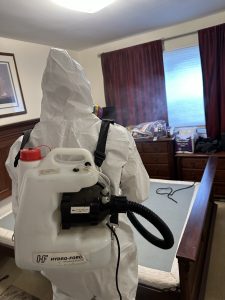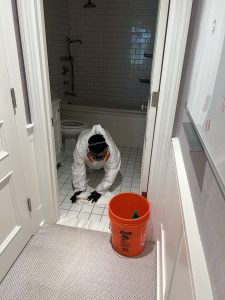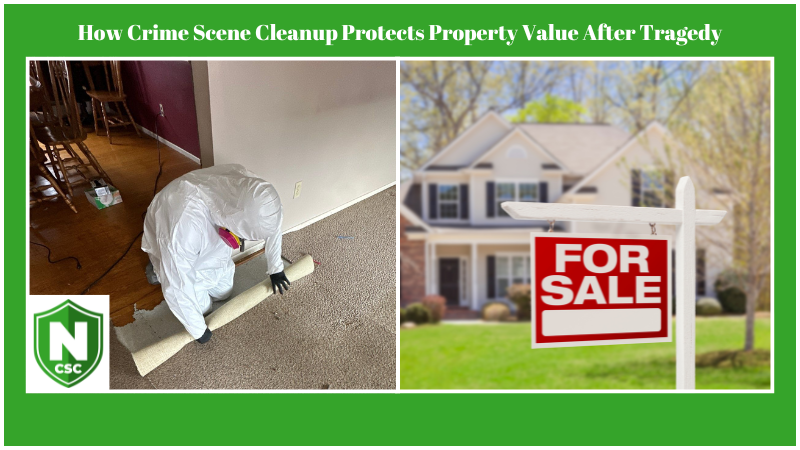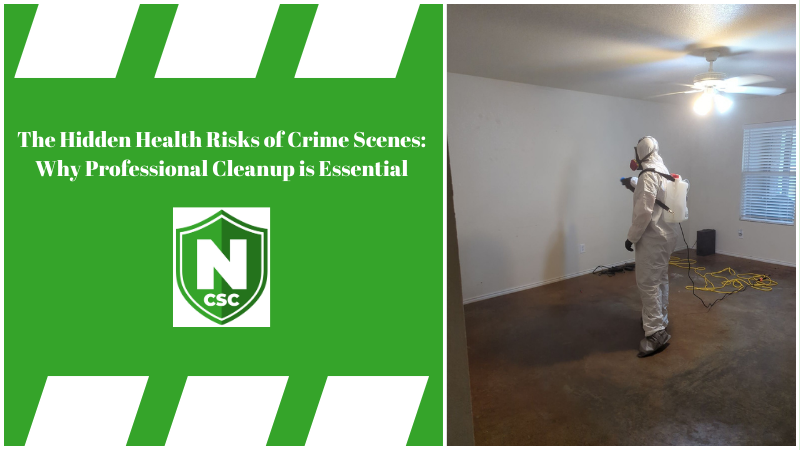Emergency Response: What to Do Before Crime Scene Cleaners Arrive

In the aftermath of a crime or traumatic incident, the first moments are crucial. While the immediate focus is on the safety and well-being of individuals involved, it’s essential to consider the cleanup process that follows. Knowing what to do before crime scene cleaners arrive can make a significant difference in minimizing further damage and facilitating a smoother restoration process. In this article, we’ll explore practical steps to take during the critical period before cleanup experts are on the scene.
What to Do Before Crime Scene Cleaners Arrive
Follow these steps before crime scene cleaners arrive:
Ensure Safety First: The primary concern after a crime or traumatic event is safety. If there are injuries, it’s crucial to call emergency services immediately. Once everyone is safe and the scene is secure, consider restricting access to the affected area to prevent further contamination or disturbance.
- Contact Law Enforcement: Coordinate with law enforcement to ensure that their investigation is complete and that they have documented any evidence needed. Law enforcement professionals will guide you on when it’s appropriate to begin the cleanup process. It’s essential to follow their instructions and not compromise any potential evidence.
- Limit Movement in the Area: Minimize movement within the affected area to prevent the spread of potential contaminants. This step is crucial for preserving the integrity of the scene and facilitating a more efficient cleanup process. Restrict access to only those who are necessary for immediate response and investigations.
- Protect Yourself: If you must enter the affected area before cleanup professionals arrive, prioritize your safety. Wear appropriate personal protective equipment (PPE), including gloves and masks, to reduce the risk of exposure to biohazardous materials. Exercise caution and avoid direct contact with any potential hazards.
- Document the Scene: Take photographs of the affected area before any cleanup begins. This documentation can be valuable for insurance purposes and may assist cleanup professionals in understanding the scope of the work ahead. Ensure that the photos capture the scene from various angles and distances.
- Contact Your Insurance Provider: Notify your insurance provider as soon as possible. Provide them with details about the incident and inquire about the coverage for crime scene cleanup. Understanding your insurance coverage will help you make informed decisions during the cleanup process and alleviate financial concerns.
- Arrange for Professional Cleanup Services: As soon as law enforcement completes their investigation and deems the area safe, contact a reputable crime scene cleanup company. Choose a company with experience, proper certifications, and a commitment to handling sensitive situations with empathy and professionalism. Promptly scheduling cleanup services can help restore the affected space efficiently.
Contact National Crime Scene Cleanup at 1-844-263-1521.
The Importance of Professional Crime Scene Cleaners
Cleaning up a crime scene is a complex and sensitive task that requires specialized skills, knowledge, and equipment. There are several reasons why it is important to use professionals for crime scene cleanup:
Safety and Health Concerns: Crime scenes often involve biohazardous materials such as blood, bodily fluids, and other potentially infectious substances. Professionals are trained to handle these materials safely, minimizing the risk of exposure to harmful pathogens or contaminants.
- Compliance with Regulations: Crime scene cleanup must adhere to local, state, and federal regulations regarding the disposal of biohazardous materials. Professionals are familiar with these regulations and ensure that the cleanup process is carried out in compliance with the law.
- Proper Equipment and Techniques: Crime scene cleanup professionals use specialized equipment and techniques to effectively and thoroughly clean and sanitize the area. This includes personal protective equipment (PPE), industrial-strength cleaning agents, and disposal methods that are not readily available to the general public.
- Minimizing Psychological Impact: Cleaning up a crime scene can be emotionally challenging, especially for friends, family, or property owners. Professionals are trained to approach the situation with sensitivity and empathy, minimizing the psychological impact on those affected.
- Preventing Spread of Infection: Improper cleanup can lead to the spread of infectious diseases and contaminants. Professionals take steps to contain and eliminate biohazards, reducing the risk of infection and protecting the health of individuals in the vicinity.
- Thorough Restoration: Crime scenes may have structural damage or hidden biohazards that require thorough inspection and restoration. Professionals are equipped to identify and address all aspects of the cleanup process, ensuring that the area is fully restored to a safe and habitable condition.
- Legal and Insurance Considerations: Professional crime scene cleanup services can provide documentation and certification of the cleanup process. This can be important for legal purposes and insurance claims, demonstrating that the area has been properly decontaminated and restored.
- Experience and Expertise: Crime scene cleanup professionals have the experience and expertise to handle a wide range of situations, from violent crimes to accidents and suicides. Their knowledge allows them to efficiently and effectively manage the cleanup process.
This is not a job you want to attempt to do on your own. using professionals for crime scene cleanup is crucial for ensuring the safety of individuals involved, complying with regulations, preventing the spread of infections, and addressing the complex and sensitive nature of the cleanup process. It also helps in providing peace of mind to those affected by the incident.
Conclusion
In the aftermath of a crime or traumatic event, swift and careful action is necessary. Knowing what to do before crime scene cleanup professionals arrive can contribute to a smoother and more effective restoration process. By prioritizing safety, following law enforcement guidance, and taking proactive steps, individuals can pave the way for a thorough cleanup and the eventual return to a safe and habitable space.
If you are in this unfortunate situation and followed the steps above, call National Crime Scene Cleanup Today at 1-844-263-1521.


 Ensure Safety First: The primary concern after a crime or traumatic event is safety. If there are injuries, it’s crucial to call emergency services immediately. Once everyone is safe and the scene is secure, consider restricting access to the affected area to prevent further contamination or disturbance.
Ensure Safety First: The primary concern after a crime or traumatic event is safety. If there are injuries, it’s crucial to call emergency services immediately. Once everyone is safe and the scene is secure, consider restricting access to the affected area to prevent further contamination or disturbance. Safety and Health Concerns: Crime scenes often involve biohazardous materials such as blood, bodily fluids, and other potentially infectious substances. Professionals are trained to handle these materials safely, minimizing the risk of exposure to harmful pathogens or contaminants.
Safety and Health Concerns: Crime scenes often involve biohazardous materials such as blood, bodily fluids, and other potentially infectious substances. Professionals are trained to handle these materials safely, minimizing the risk of exposure to harmful pathogens or contaminants.

